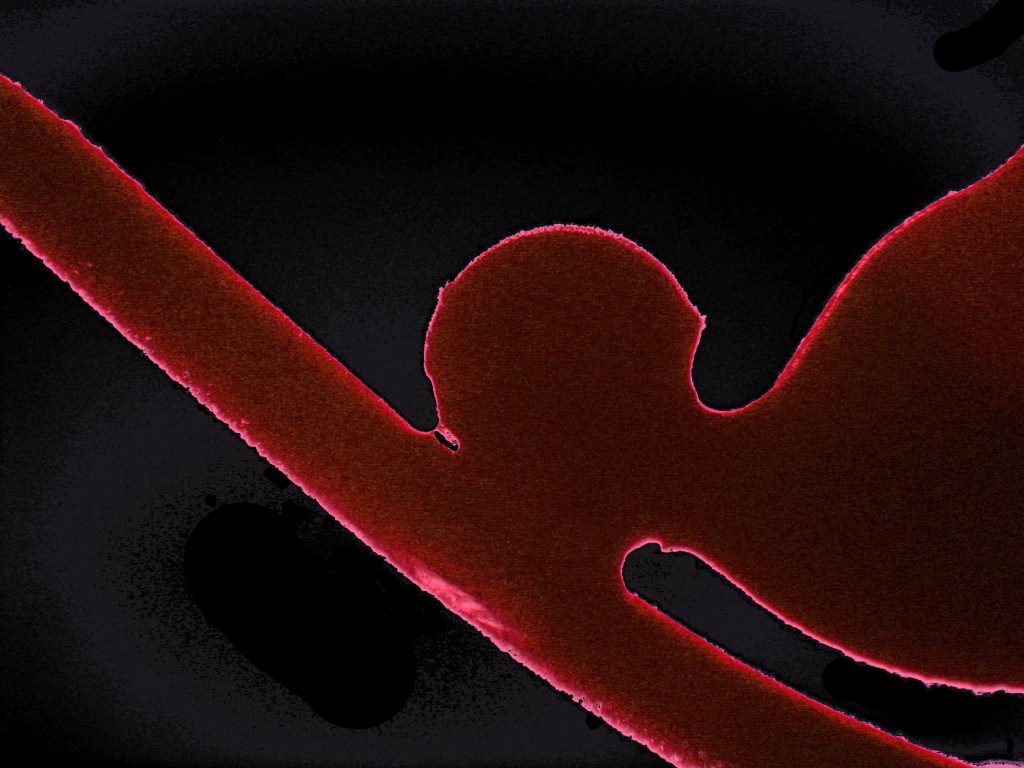What Foods Should I Eat or Avoid if I’m Taking Warfarin/Coumadin (Blood Thinner)?
Photo Credit: Matt Hannah, via Flickr Creative Commons
Warfarin is a medication also known as Coumadin, it is commonly used to “thin” blood (make it less likely to clot). It is mainly taken by people who have a history of blood clots (called a deep vein thrombosis or a pulmonary embolus) or those at high risk for forming blood clots (people with atrial fibrillation or an artificial heart valve, as well as people who are recovering from certain surgeries).
Is avoiding foods with Vitamin K when you are taking Warfarin the best advice?
It is a medication people have to be very careful with. If your blood is too “thin,” you may bleed. If it is not “thin” enough, you may clot. You want it to be just right—like Goldilocks. This “thinness” is measured by a test called an INR, and for most issues you want this number to be between 2-3. It is best if this number remains in the stable in this range between 2-3.
Warfarin works by blocking the clotting effects of Vitamin K. As such, in the past, it has been recommended to avoid foods with Vitamin K.
Is avoiding foods with Vitamin K when you are taking Warfarin the best advice? Turns out it is not.
Study number 1: Is low or high Vitamin K in your diet better?
One study looked at 52 people—26 with stable control of anticoagulation and 26 that had unstable control of anticoagulation—and looked at how much food with Vitamin K the participants ate each week. Those who ate more foods with Vitamin K (76mg vs 29mg) were found to be more likely to have stable control. Because Vitamin K is a fat-soluble vitamin, the study also looked at how much fat each group ate each week and determined that fat consumption did not play a role in the stability of anticoagulation.
Finding: eating more Vitamin K appears to have a positive effect on maintaining a stable level of anticoagulation.
Study number 2: Does more consumption of Vitamin K lead to thicker blood?
The old thought was that if you consume more Vitamin K, then your blood is more likely to get too thick. This study showed that is not the case. It followed 1,157 people on Warfarin. A subgroup of approximately 30% later developed low INR readings (blood too ‘thick’). The study found that the people in this “thick blood” group were typically eating less Vitamin K in their diet, though this trend was small. Again suggesting that what we were recommending was not the best advice.
Finding: consuming less Vitamin K appears to make it more likely for blood to become too thick, consuming more makes occasional consumption less likely to affect your tests.
Study number 3: What is Vitamin K’s effect on blood stability?
What about people who have blood that is hard to control, where their tests go from too thin to too thick often? Does adding a small amount of Vitamin K to their routine help them stabilize their blood thinness? Turns out it does. In this study, 70 patients with unexplained poor INR control were randomly assigned to receive 150 mcg of daily Vitamin K or placebo for six months. Those receiving Vitamin K were almost twice as likely to be in range compared with controls.
Finding: small doses of Vitamin K can help stabilize fluctuations in blood thickness in people with low vitamin K consumption.
So what are all these studies are saying?
It is no longer the best practice to avoid foods with Vitamin K when you are taking Warfarin,
Vitamin K-rich foods are very good for us. In addition to helping with our blood clotting, vitamin K also helps keep our bones strong. Also the foods that are rich in vitamin K are often loaded with other nutrients and fiber. It is for good reason that the new recommendation is that you do not need to avoid vitamin K rich foods if you are on blood thinners. However, it is important that you eat roughly the same amount of Vitamin K-rich foods each week.
Vitamin K-Rich Foods
One half-cup kale has or spinach contains approximately 500 mcg of vitamin K. Other vegetables high in vitamin K include greens (e.g. beet, collard, mustard and turnip greens) and brussel sprouts. In contrast, most lettuces and other green vegetables have moderate or low vitamin K content (e.g. <100 mcg).
Here is a helpful list of Vitamin K Foods for your reference:
Additional sources of Vitamin K include multivitamins, calcium supplements, and some herbal products. The healthy bacteria in your intestines also make vitamin K for you.
Other Considerations when taking Warfarin
Warfarin interacts with many medications, both over the counter and prescription, but rarely with foods, like grapefruit. Print out this helpful reference to all the interactions (it is a long list).
Two Take Home Messages
- You do not need to avoid foods with Vitamin K, just consume them in roughly the same amount each week.
- You will need to have your INR level checked and your medication adjusted a week after starting a diet higher in Vitamin K.
My recommendation is that you talk to your physician before making a major dietary change and schedule an INR test one week after you start this lifestyle change. Expect some medication changes and continue to test your INR levels weekly until they stabilize.
What have been your experiences with Warfarin/Coumadin on the Ornish Diet?






